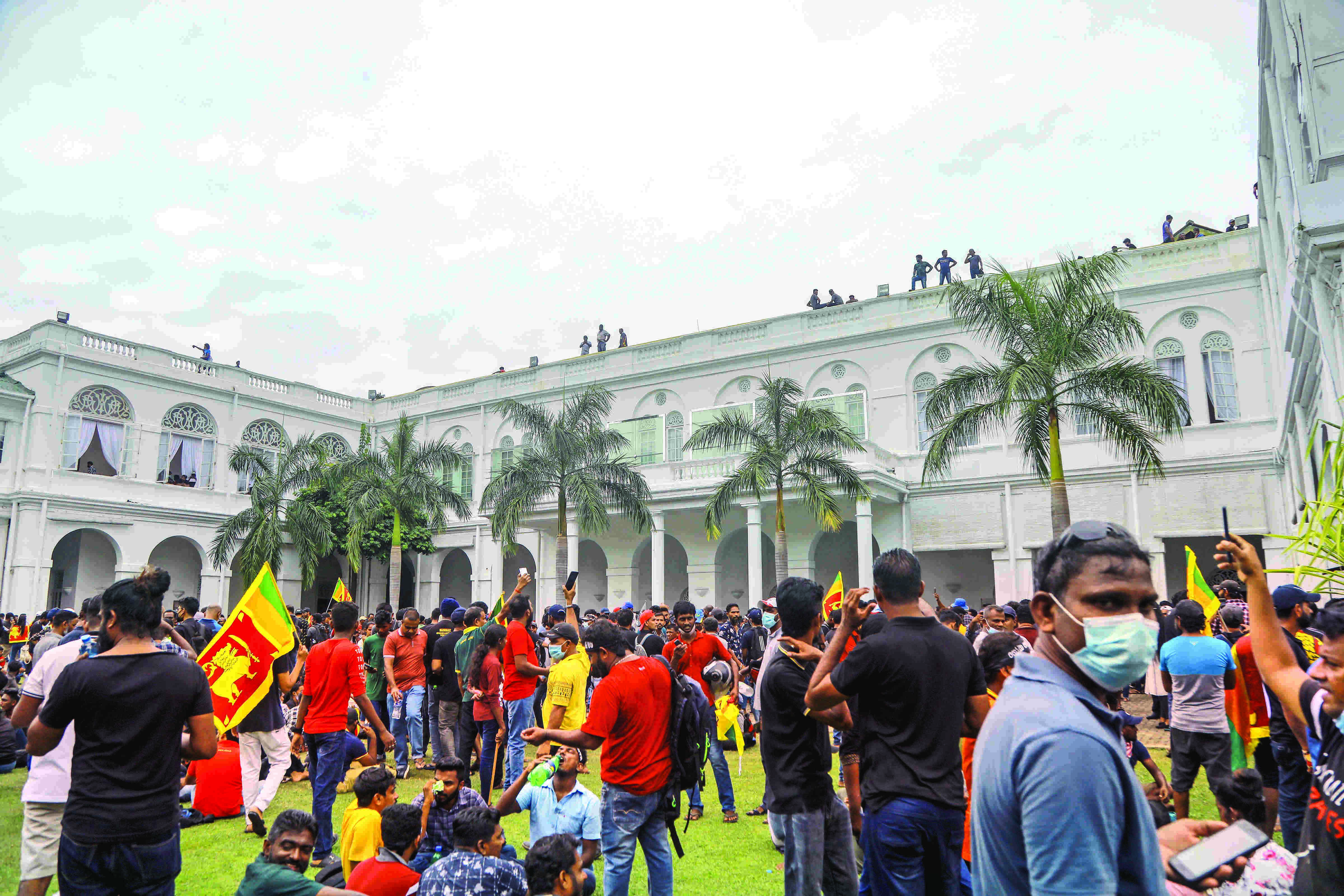Protesters capture Sri Lankan President's official residence

Colombo: Sri Lanka Parliament Speaker said President Gotabaya Rajapaksa has agreed to resign on Wednesday even as protesters have broken into Sri Lankan Prime Minister Ranil Wickremesinghe's private residence and set it on fire. It came hours after Wickremesinghe said he would resign when a new government is formed even as the island nation saw crowds storming President Rajapaksa's home and office.
The Speaker will become the President for 30 days during which Parliament will elect a new leader.
Earlier, Sri Lanka's Parliament Speaker Mahinda Yapa Abeywardena had, on Saturday, asked the President and Prime Minister Ranil Wickremesinghe to resign immediately to make way for an all-party government after the country witnessed its biggest protest yet amid an unprecedented economic crisis.
Abeywardena in a letter to Rajapaksa, whose whereabouts are still not known, informed him about the outcome of the party leaders' meeting he had convened on Saturday evening after which Wickremesinghe offered to resign and form an all-party government.
Abeywardena told Rajapaksa that party leaders wanted him and Wickremesinghe to resign immediately, Parliament to be convened in seven days to appoint an acting president, and appoint an interim all-party government under a new Prime Minister commanding majority in Parliament. It was also decided to call for elections within a short period of time and install a new government.
Meanwhile, a group of protesters on Saturday entered the private residence of Sri Lankan Prime Minister Ranil Wickremesinghe and set it on fire, hours after he offered to resign to make way for an all-party government amid unprecedented protests in the country for the resignation of the government led by President Gotabaya Rajapaksa. The protesters entered 73-year-old Wickremesinghe's house on 5th Lane in Colombo and set the place on fire after a tense situation erupted between the protesters and security forces on the ground. It wasn't immediately clear if he was inside at the time of the attack.
Despite tear gas being fired on the protesters to disperse, the protesters entered his house and set it on fire, authorities said.
Videos posted online showed protesters rejoicing after setting the house on fire.
After breaching the gates of the Presidential palace, hundreds of people could be seen in live broadcasts on social media walking through its rooms, with some among the boisterous crowd jumping into the compound's pool.
The President's whereabouts were unknown and it is believed the 73-year-old leader left the house before the massive mob arrived.
Meanwhile, Colombo Municipal Council (CMC) fire brigade said they were informed that the Prime Minister's private residence in Colombo was set on fire and its teams were unable to reach the location due to the unrest. The incident came hours after Wickremesinghe offered to resign.
Sri Lanka, a country of 22 million people, is under the grip of an unprecedented economic turmoil, the worst in seven decades, crippled by an acute shortage of foreign exchange that has left it struggling to pay for essential imports of fuel, and other essentials.
Protesters blame Rajapaksa for the country's economic malaise, the worst since independence in 1948.
Last week, Wickremesinghe announced in Parliament that Sri Lanka would present a debt restructuring programme to the IMF by August to secure a bailout package while underlining that the negotiations with the global lender were more complex and difficult than in the past because the country was bankrupt.
The country, with an acute foreign currency crisis that resulted in foreign debt default, had announced in April that it is suspending nearly $7 billion foreign debt repayment due for this year out of about $25 billion due through 2026. Sri Lanka's total foreign debt stands at $51 billion.



